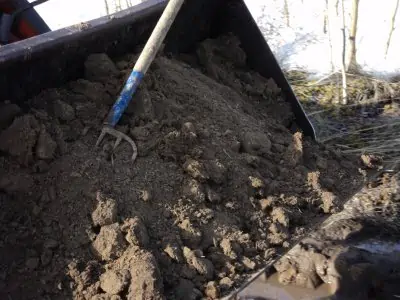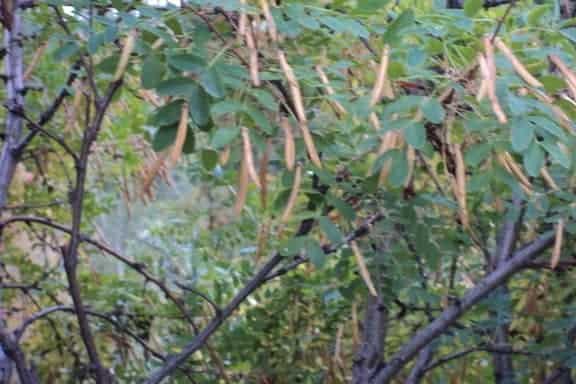
A few years ago, a neighbour told me my garden needed to be amended with some dirt. He was referring to the stereotypical black soil that can be purchased from either big-box stores or a local distributor who harvests the soil from old marshland. Neither source promised high nutrients for the vegetable garden.
Here in the Yukon, the soil tends to be a sandy brown colour, but with the addition of composted manure, it becomes a rich dark brown. When we first purchased this property, there were several garden beds with black soil. I have to assume it was purchased from somewhere else.
I was very surprised to find there seemed to be no ability to hold water or to promote lush growth in this soil. But there were also areas that had been allowed to run wild with plants that were growing almost four feet high, in contrast to the surrounding grass, which stopped at about 12 inches.
When I pulled some of the taller plants, I discovered there had been an old manure pile in that spot. Even knowing the benefits of composed manure, I was still surprised at the difference.
In the years that have passed, we have continued to add composted manure to our gardens. This has built up the soil in ways I didn’t expect.
I find it interesting that where there has been some old manure spread, the grass not only is greener and thicker, it also seems to withstand the early fall frosts as well, which is handy to know when dealing with either late spring frosts or early fall frosts.
The discovery that well-amended soils had the ability to help plants withstand these light frosts was something revealed in a study done by the Growers of Organic Food Yukon (GoOFY) group. This five-year study involved legume plants such as clover and peas.
The test plots were split into two. Half had amendments added, while the others were left as found.
Initially, it had been thought that the legumes would fix more nitrogen with the proper amendments. But it was the ability of the amended plants to withstand frost that was a surprising result of this test.
The amendments were not chemical additives, but naturally-sourced rock powders. This brought the life in the soil into a better balance.
Adding things such as composted manure also adds life to the soil. Not only does it contain nutrients for plants, it also has life that helps those plants absorb the available nutrients.
There is also life in the soil already in the form of nematodes, fungi and bacteria. This life also benefits from the organic soil amendments. When they flourish, so does the plant life.
It may seem complex when dealing with the science of how to enrich the soil. This is why so many pre-made fertilizers have been very popular. But growing organically doesn’t have to be complex. Just compost any plant matter and let the soil web lifeforms do the rest.
COMMON ORGANIC AMENDMENTS:
Compost
Composted Manure
Kelp Meal
Greensand
Bone Meal
Blood Meal
Wood Ash
Joan Norberg and her husband, Allan, run Grizzly Valley Farms on the Mayo Road. They have successfully endured the Yukon’s short seasons and less-than-ideal soil conditions. Send her your questions at [email protected].



